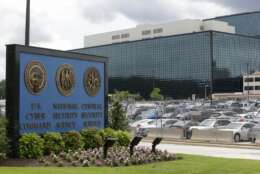Technology
-
The new center will focus on both setting security standards and ensuring U.S. advances in AI aren't stolen by foreign adversaries.
September 28, 2023 -
The majority of federal, state and local authorities still rely on paper-based processes and legacy systems that are unable to exchange data with each other. As a result, government organizations often struggle with inefficiencies, disorganization…
September 28, 2023 -
The Department of Veterans Affairs’ top IT officials say warning bells didn’t sound when its website experienced problems, leading to a delayed response to address the issue.
September 27, 2023 -
A shutdown would potentially leave CISA with a skeleton crew to respond to cyber attacks on the networks of federal agencies and critical infrastructure.
September 26, 2023 -
When evaluating the use of AI, the core issue for any operation is data collection, storage, use and regard to it's future implications.
September 26, 2023 -
It’s no secret that artificial intelligence has sent the federal government into a tailspin in recent months. Aside from countless hearings to discuss AI's benefits and dangers in the coming years, the most influential companies in the industry recently formed the Frontier Model Forum, designed to guide the ‘safe and responsible’ development of frontier AI models.
September 26, 2023 -
The Chips Act shoveled billions of taxpayer dollars to the microelectronics industry. One reason for making more circuits domestically is greater cybersecurity and supply assurance. Now a sort of overlooked piece of the electronics supply chain is gaining attention in Congress: The boards the chips are mounted on. For more, Federal Drive Host Tom Temin spoke with the Executive Director of the Printed Circuit Board Association of America, David Schild.
September 26, 2023 -
The 16th version of the Federal IT Acquisition Reform Act (FITARA) scorecard from Congressman Gerry Connolly (D-Va.) revealed two new pilot categories measuring the move to cloud and CIO authorities.
September 26, 2023









